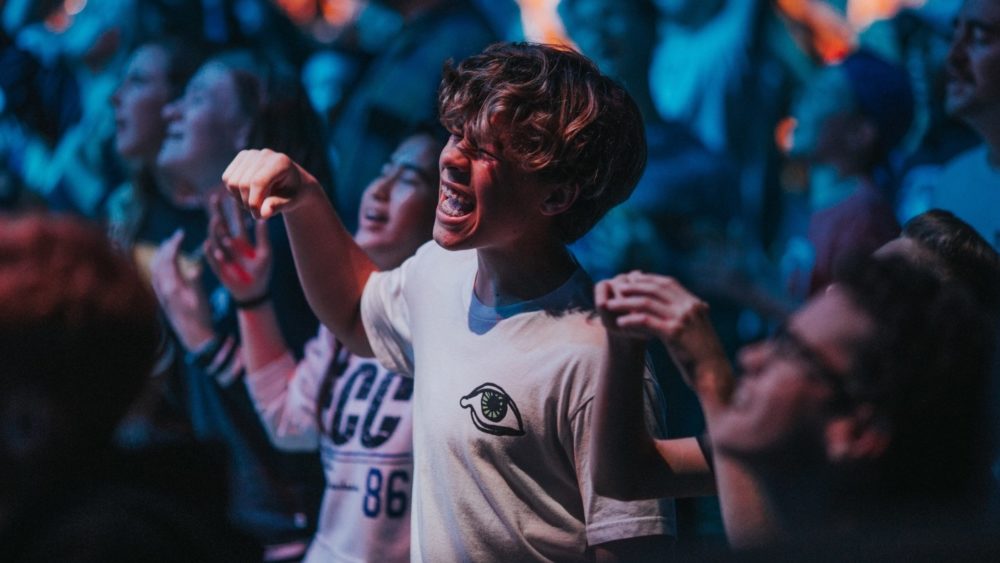Do I just believe in Jesus because my parents do?
A Gen Z reflection on the meaning of Christmas
I’m 16 years old and I try to go to church every week. I do that because I want to, not because Mum and Dad make me. I was born and raised in a Christian family, but my faith is my own.
Or is it?
I’ve found Christmas is a great time of year for me to ask whether I’m just regurgitating beliefs that my parents or youth leaders have.
I lost the key part of being a Christian – my relationship with God.
Am I just going with the flow of all the stuff I’ve been taught about Jesus, the saviour of the world, or am I excited and motivated about what the baby in the manger went on to do – and what is to come?
I think it’s kinda awesome that there are other people like me – younger Christians. Yes, they do exist in Australia (I know some of them). But have I and other young believers like me taken a good hard look at what it even means to, you know, believe in Jesus?
Has the fact Jesus was born, died and rose again for our sins been so ingrained in us, that many of us have lost the true heartbeat of Christmas?
The staples of my own family festivities at this time of year include going to church on Christmas Eve and morning, reading devotionals as a family, and having a family lunch and dinner on December 25. These are good things to do but during the past few years, I realised I had a growing dependence on reading the Bible at church and youth group, rather than reading the Bible for myself. As a result, I lost the key part of being a Christian – my relationship with God.
Feeling so comfortable in the Christian space can make it much harder to identify why we need Jesus in our lives. But it’s a comfort zone that actually brings doubts that grow and never see the light of day.
I can find it hard to get into the habit of reading more than the verse of the day on my phone. I also still need to constantly seek guidance from my parents and youth leaders about specific Bible verses. But when I started to apply my own critical thinking to the Bible, that’s when the Christmas story – and all other aspects of the Bible – became so much more than a story. It was when Christmas became a day of deep significance to humankind, not just an explosion of presents and food.
Getting into my own faith triggered an eagerness to learn more about the Jesus I thought I’d known my whole life. In reality, though, I could only recite what I’d heard in sermons. Firing up my own faith did take persistence. I set multiple reminders on my phone throughout the day to read the Bible. I joined Bible reading plans, and I also tried to pick up my physical Bible more often.
Now I know the birth of Christ means so much more than human consumerism.
I’ve been wondering this Christmas about whether my mates, and other younger Christians, have asked themselves if they personally believe that the birth of Jesus Christ is one of the most significant events in history? Like, REALLY believe it. For themselves, and not just because it’s what they have heard for all their lives.
Do they also know how the Christmas story directly affects their lives?
As I started to own my faith through my new desire to get to know God personally, I began to realise the magnitude of Jesus’ birth, death, and resurrection. This gave me a new outlook on all aspects of life, especially everything done during the Christmas season. I suddenly recognised how charity events are run because of the love of God, that carols are sung because of the love of God – and that we are saved because of the love of God.
I know it can be easier to focus on the other aspects of Christmas, such as gifts and decorations (which are cool, sure). But now I know the birth of Christ means so much more than human consumerism.
As Christians, we have the opportunity to see everything in a new light, one where we have a living hope in what is to come, without the worries of what is happening short-term.
A verse I find encouraging when I’m in a spiritual rut is Proverbs 3:5-6 – ‘Trust in the Lord with all your heart and lean not on your own understanding; in all your ways acknowledge him, and he will make your paths straight.’
This helps me build the mindset of wanting to go to church primarily because of my love for God, instead of just wanting to spend more time with family. I go to my local Christmas carols to support my brothers and sisters in Christ. I want to back the charity events which spread the love of God to non-believers and volunteers.
As I’ve radically realised, it’s our own love for God and doing things for God that will make our excitement for Christmas infinitely greater.
I hope others realise the same thing about owning their own faith.
Email This Story
Why not send this to a friend?

